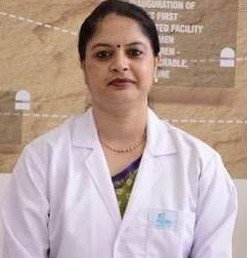Late Term Abortion - Termination of Pregnancy in 2nd Trimester

Quick Summary
- Abortion in the later weeks of pregnancy is possible with medical advancements.
- Abortion at 5-months or later does not have more risks than abortion in the first trimester.
- You can still bear a child in the future safely after having an abortion at 5-months or later.
Table of Contents
- What is Late-Term Abortion?
- What Happens Before the D&E Procedure?
- How is D&E Performed?
- What Happens After the D&E Procedure?
- What are the Possible Side Effects or Complications of D&E Surgery?
- Reasons for Late or Second Trimester Abortion
- What are the Regulations Governing Late-Term Abortion?
- Where and Who Can Perform a Second Trimester Abortion?
- Takeaway
- Frequently Asked Questions
- References
The thought of abortion at 5-months or in the later weeks of pregnancy seems scary and risky. It's natural to think that abortion in the late weeks of pregnancy will only cause complications and has a lot of risks. Many even wonder that abortion in later pregnancy is simply not possible. Well, now with medical advancements, it is possible to get an abortion even in the later weeks of pregnancy.
Is it safe to end a pregnancy late? Does abortion at 5-months have complications? Would it harm my body? Is it possible to abort a 5-month pregnancy? Will I be able to bear a child again in the future safely? Is abortion at 6-months of pregnancy possible? What is 28-week abortion pill? This blog will answer all your queries and give you deep insight into late-term abortion.
What is Late-Term Abortion?
An abortion in late pregnancy is also called second-trimester abortion/late-term abortion/2nd-trimester abortion. Later-term abortion is when a pregnancy is ended at 21 weeks or later. It is a process similar to surgery, but instead of suction, instruments are used to remove the growing baby. This procedure is called dilation and evacuation (D&E).


What Happens Before the D&E Procedure?
The patient can expect the following before the 2nd-trimester abortion procedure:
- An ultrasound to evaluate the duration of pregnancy and the size of the uterus
- The doctor will use an instrument to dilate the cervix.
- The patient will be given misoprostol several hours before the procedure to soften the cervix.
How is D&E Performed?
Dilation and evacuation (D&E) is a combination of dilation and curettage (D&C), vacuum aspiration, and surgical instrumentation like the use of an instrument called forceps. The surgery usually takes around 30 minutes. The procedure does not require an overnight stay. The patient can expect the following:
The doctor will:
- Give an antibiotic to prevent infection.
- Position the patient on the examination table in a prone (lying on the back) position and place the feet on stirrups.
- Insert a speculum (medical tool) into the vagina.
- Clean the cervix and vagina with an antiseptic solution.
- Inject general or local anaesthesia, depending on the condition of the patient.
- Grasp the cervix with an instrument to hold it in place.
- Dilate the cervical canal with probes.
- Pass a cannula (hollow tube) into the uterus. This cannula is attached to a pump and a bottle that creates a vacuum to remove the tissues from the uterus.
- Pass a forceps (a grasping tool shaped like a scissor) into the uterus to remove larger pieces of tissue.
- Use a curette (curved tool) to scrape the uterus lining and remove tissues from the uterus.
- Apply suction to remove the tissues completely.
- Provide medicine to stop the bleeding.
- Examine the uterine tissue and use ultrasound to ensure all the tissue is removed and the pregnancy has ended.
What Happens After the D&E Procedure?
The patient can expect the following after the second-trimester abortion surgery:
- Cramps that last for several hours to a few days
- Irregular bleeding or spotting for around two weeks. During the first week, the patient should only use sanitary pads and avoid tampons or menstrual cups.
- Antibiotics will be given to prevent infection.
- Avoid having sexual intercourse for at least one week or longer until the doctor advises
- Medicines contract the uterus and return to its pre-pregnancy size.
What are the Possible Side Effects or Complications of D&E Surgery?
Possible risks and complications of D&E surgery include:
- Severe bleeding
- Severe pain in the abdomen
- Redness, swelling, or pain in the genital area
- Vomiting
- Infection shows signs such as fever, muscle pain, headache, and dizziness
- Sudden abdominal swelling
- Rapid heart rate
- Vaginal discharge
Reasons for Late or Second Trimester Abortion
There are several reasons why women seek an abortion at 5 months or an abortion at 6 months. Some of the reasons are:
- Foetal abnormalities: Many women seek late abortion due to medical reasons. Due to medical advancement, foetal genetic abnormalities such as Down syndrome or cystic fibrosis can be detected during pregnancy. These can be detected within ten weeks of pregnancy. However, structural foetal abnormalities are often detected only in late pregnancy. An anatomy scan of the baby is performed around 20 weeks as a part of routine care, which involves ultrasound imaging of all the developing organs of the baby. During this checkup, many structural defects can be identified, which was not previously possible. These are lethal abnormalities due to which the baby could die before or right after birth. In such scenarios, a woman might wish to end a pregnancy well past 21 weeks.
- Health risks to the mother: There are chances that a woman may develop life-threatening conditions late in her pregnancy. Diseases such as cancer require immediate treatment, such as preeclampsia and chorioamnionitis (intrauterine infection) along with premature rupture of the amniotic sac (PPROM). For such reasons, a woman may choose to or be medically advised to go for an abortion to protect her health.
- Non-medical reasons: There are several non-medical reasons why a woman may want a late-term abortion. Some of them include the following:
- A woman is unaware that she is pregnant and finds out later in her pregnancy and doesn't want to continue with it.
- Lack of information regarding where to access for terminating her pregnancy.
- Difficulties in accessing care due to travelling and locating a provider for abortion services.
- Lack of insurance coverage.
- Do not have sufficient money for the procedure.
- Transportation issues.
What are the Regulations Governing Late-Term Abortion?
According to the MTP Act of 1971, abortion up to 20 weeks of pregnancy was allowed. However, even after 50 years of the MTP Act, many women still choose unsafe methods for abortion and risk their lives. Considering this situation, Rajya Sabha passed a new MTP Bill in 2021 which the Lok Sabha initiated in 2020. According to the 2021 MTP Bill:
- For pregnancy between 20 and 24 weeks, abortion is allowed after the opinion of 2 medical practitioners. This is allowed to a special category of women such as differently-abled, rape victims, and minors.
- For abortion after 24 weeks, a state-level medical board will decide to allow for pregnancy in case of foetal abnormalities.
- According to the Bill, the name and other information of the woman opting for an abortion shall not be revealed except by the person authorized by the law.
- Only doctors who have specialization in gynaecology/obstetrics can perform an abortion.
- In case a rape victim who has exceeded 24 weeks of pregnancy can opt for abortion through a writ petition.
Where and Who Can Perform a Second Trimester Abortion?
In case of pregnancy after 20 weeks, a woman undergoes the following process:
- A woman has to approach and appeal a third-party authorization (court) for abortion post-20 weeks who decide to terminate the pregnancy after 20 weeks.
- As the courts are petitioned for abortion, they set up a medical board that decides the approval or disapproval of terminating a pregnancy after overviewing all the conditions (the reason behind seeking an abortion, examining her, etc.).
- On approval, an authorized RMP will perform the abortion procedure in a government or government-approved hospital.
Takeaway
Every woman has the right to abort. But you must go for safe methods rather than using unsafe methods and risking your life. Second-trimester abortion or abortion in late pregnancy should not be performed at home using any kit or any other method. Please consult a registered Ob/Gyn for abortion procedures. A woman can undergo an abortion even after 24 weeks today, with special permissions.
However, if you have any doubts, you can contact us to resolve all your queries. Our expert team will guide you at every step through this difficult decision. All you have to do is contact our personal care team. Alternatively, you can also visit our website HexaHealth to learn more about 2nd-trimester abortion and how the government has given you the power to decide a woman.Last Updated on: 3 July 2024
Reviewer

A specialist in Obstetrics and Gynaecology with a rich experience of over 21 years is currently working in HealthFort Clinic. She has expertise in Hymenoplasty, Vaginoplasty, Vaginal Tightening, Labiaplasty, MTP (Medical Termination...View More
Author

Charu Shrivastava
BSc. Biotechnology I MDU and MSc in Medical Biochemistry (HIMSR, Jamia Hamdard)
3 Years Experience
Skilled in brand marketing and SEO-driven medical content that educates and engages patients, healthcare professionals, and the general public. With medical writing and proofreading expertise, she ensures accuracy,...View More
Expert Doctors (10)
NABH Accredited Hospitals (5)
Latest Health Articles
Related Treatments


























